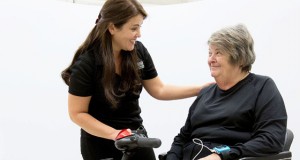Recent News

- On Campus
HSC to host HIV Symposium
HIV remains a major global health issue, with an estimated 40 million people living with HIV worldwide. About 10 million of them, including about half of infected children, do not have access to treatment. From 9:30 a.m. to noon on Monday, health care providers working on the frontlines of the HIV ...
- Our People
Recognizing the important role of community health workers
In recognition of the important role of community health workers, their leadership and their impact on communities, Community Health Worker Week 2024 is being celebrated nationally April 22-28. The University of North Texas Health Science Center at Fort Worth School of Public Health’s State Hea...
- Our People
TCOM’s Dr. Lisa Nash honored with the 2024 Special Lifetime Achievement Award by AOGME
It has been a lifetime of service to osteopathic medicine and graduate medical education for Lisa Nash, DO, MS-HPEd, FAAFP, and that remarkable career was honored by the Assembly of Osteopathic Graduate Medical Educators as she received their 2024 Special Lifetime Achievement Award as part of the Am...
- Our People


Social media